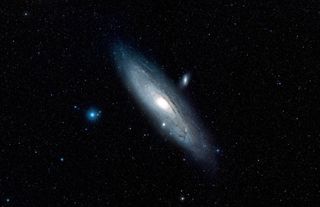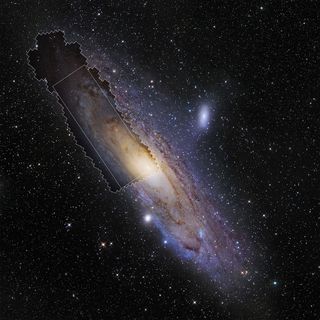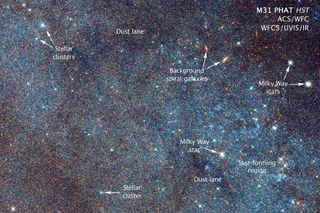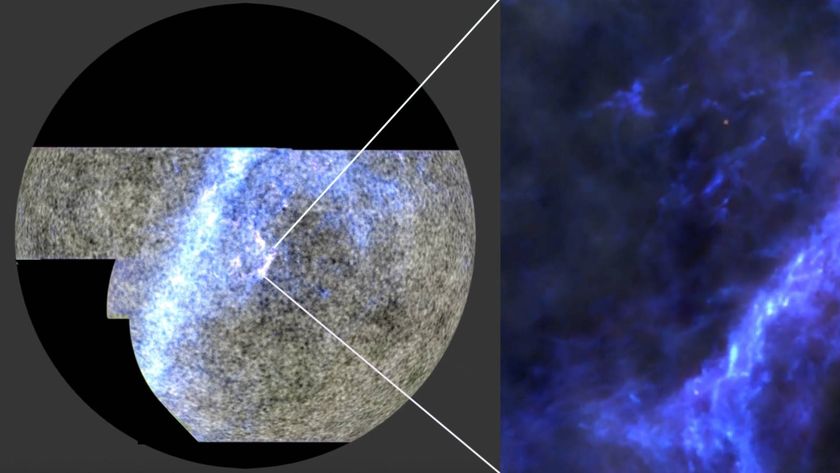Hubble Telescope Captures Best View Ever of the Andromeda Galaxy
SEATTLE — The Hubble Space Telescope has captured an amazing new photo of the Andromeda Galaxy. The new mosaic image represents the sharpest and largest mosaic image of the Milky Way's galactic neighbor ever taken, Hubble officials said.
The panoramic image shows striking details of the bright galaxy, which is located about 2.5 million light-years from Earth. While that may seem far away, Hubble usually trains its view on more distant targets. Because Andromeda fills up so much of Hubble's field of view, the telescope was able to capture incredible detail in its survey of the galaxy. Fly through the amazing Andromeda image in a new video as well.

The newly-released image stretches across about 48,000 light-years of the galaxy's disk, according to Hubble officials. In total, the image shows more than 100 million stars in the galaxy. Hubble officials revealed the new photo during a news conference here at the 225th meeting of the American Astronomical Society. [See more amazing Hubble Space Telescope photos]
"Hubble traces densely packed stars extending from the innermost hub of the galaxy, seen at left," Hubble representatives said in a statement. "Moving out from this central galactic bulge, the panorama sweeps from the galaxy's central bulge across lanes of stars and dust to the sparser outer disk."

Scientists can use this image to help them interpret other spiral galaxies like the Andromeda galaxy that might have similar light signatures, but are farther from Earth.
The panorama was created as part of the Panchromatic Hubble Andromeda Treasury (PHAT) program. This image was created as a mosaic of 7,398 exposures taken over the course of 411 pointings of the telescope, according to Hubble officials.

"Large groups of young blue stars indicate the locations of star clusters and star-forming regions. The stars bunch up in the blue ring-like feature toward the right side of the image," Hubble representatives said in the same statement. "The dark silhouettes trace out complex dust structures. Underlying the entire galaxy is a smooth distribution of cooler red stars that trace Andromeda's evolution over billions of years."
Sign up for the Live Science daily newsletter now
Get the world’s most fascinating discoveries delivered straight to your inbox.
Andromeda and the Milky Way are on the way toward a crash of cosmic proportions. The two galaxies will merge, forming one new galaxy billions of years from now.

You can explore a zoomable version of the new PHAT image directly through Hubble here: http://hubblesite.org/newscenter/archive/releases/2015/02/image/a/format/zoom/
Follow Miriam Kramer @mirikramer. Follow us @Spacedotcom, Facebook and Google+. Original article on Space.com.













